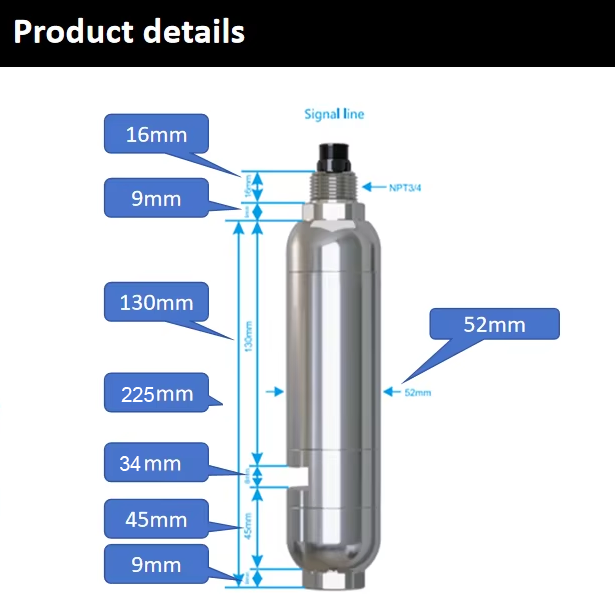I. Application Cases of Water Color Sensors in South Korea
1. Seoul’s Han River Water Quality Monitoring System
The Korean Ministry of Environment has deployed an intelligent water quality monitoring network, including color sensors, across the Han River basin. By detecting real-time changes in water color, the system provides early warnings for pollution incidents. In 2021, it successfully alerted authorities to an industrial dye leak, enabling rapid containment before widespread contamination occurred.
2. Busan Beach Water Quality Management
Busan City has installed online color monitoring devices at major swimming areas, such as Gwangalli Beach. These sensors work alongside turbidity and pH measurements to trigger automatic alerts and temporary beach closures when abnormal water color changes are detected, ensuring public health and safety.
3. Smart Aquaculture Projects in South Korea
Aquaculture farms in South Jeolla Province use color sensors to monitor water conditions. By analyzing color variations, farmers can assess algal blooms and feed residue, enabling precise feeding and improving farming efficiency by approximately 20%.
4. Industrial Wastewater Treatment Monitoring
In Ulsan Industrial Complex, multiple chemical plants utilize high-precision color sensors to monitor discharged wastewater, ensuring compliance with South Korea’s Water Quality and Aquatic Ecosystem Conservation Act, which mandates a platinum-cobalt color unit (PCU) below 20.
II. Technical Features of Water Color Sensors in South Korea
1. High-Precision Measurement Technology
South Korean manufacturers like KORBI and AQUA-TRUST have developed color sensors using multi-wavelength spectral analysis, achieving a measurement range of 0–500 PCU with a resolution of 0.1 PCU.
2. Intelligent Compensation Functions
Built-in temperature compensation and turbidity interference elimination algorithms ensure accurate measurements even in South Korea’s distinct four-season climate, including low-temperature winter conditions.
3. IoT Integration
Support for LoRaWAN and 5G communication protocols allows seamless integration with mainstream smart water platforms, such as K-water’s system.
4. Compact Design
The latest sensor models are palm-sized, making them ideal for installation in narrow municipal pipelines or small-scale water treatment systems.
5. Low Power Consumption
Solar-powered configurations enable long-term monitoring in remote areas, such as mountainous regions and islands, where power infrastructure is limited.
III. Key Application Scenarios
1. Municipal Water Supply Systems
- Raw water monitoring in treatment plants
- Tracking water quality changes in distribution networks
- Monitoring secondary water supply facilities
2. Environmental Regulation
- Automated water quality monitoring stations in rivers and lakes
- Transboundary water monitoring (e.g., Imjin River at the inter-Korean border)
- Post-storm runoff pollution assessment
3. Industrial Applications
- Wastewater treatment in textile, paper, and food industries
- Ultrapure water quality control in electronics manufacturing
- Compliance monitoring in pharmaceutical production
4. Specialized Use Cases
- Pretreatment monitoring in seawater desalination plants
- Hot spring water quality management (e.g., resorts in South Korea’s geothermal regions)
- Brewing water control for traditional beverages (e.g., makgeolli rice wine)
IV. Market Trends in South Korea
- Policy-Driven Growth: Under the Smart Water Management Promotion Strategy, South Korea plans to invest approximately KRW 300 billion (~USD 225 million) in water quality monitoring upgrades by 2025.
- Technological Innovation: Companies are developing AI-based color analysis algorithms to distinguish pollution types (e.g., algal blooms vs. chemical contaminants).
- Export Expansion: Due to their cost-performance advantage, South Korean water color sensors have seen a 15% annual export growth to Southeast Asia and the Middle East.
 We can also provide a variety of solutions for
We can also provide a variety of solutions for
1. Handheld meter for multi-parameter water quality
2. Floating Buoy system for multi-parameter water quality
3. Automatic cleaning brush for multi-parameter water sensor
4. Complete set of servers and software wireless module, supports RS485 GPRS /4g/WIFI/LORA/LORAWAN
For more water sensor information,
please contact Honde Technology Co., LTD.
Email: info@hondetech.com
Company website: www.hondetechco.com
Tel: +86-15210548582
Post time: Aug-14-2025

